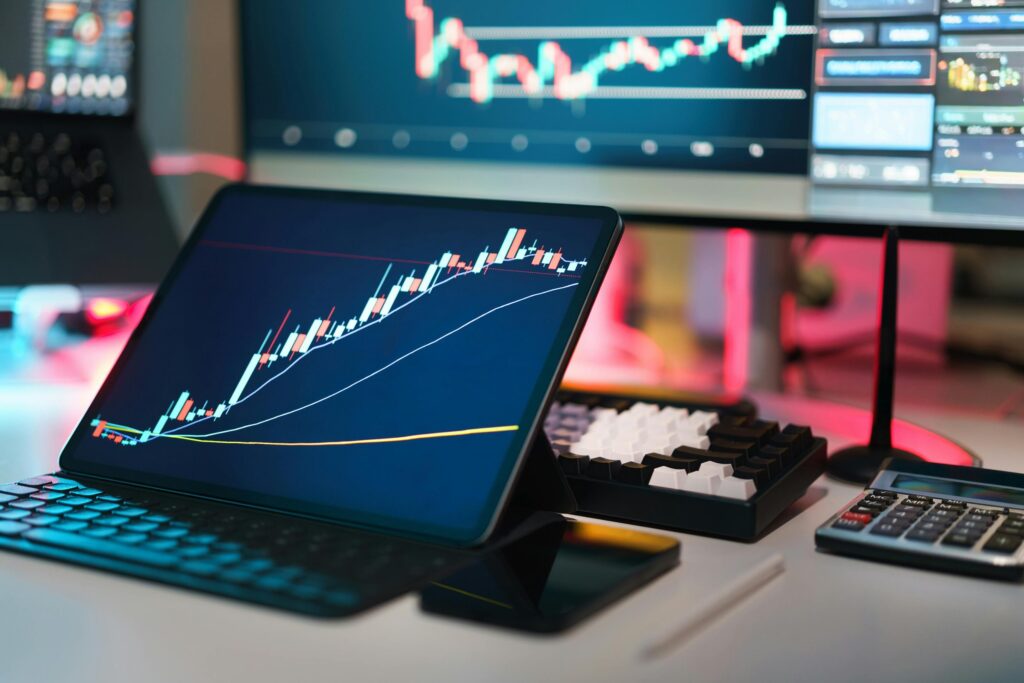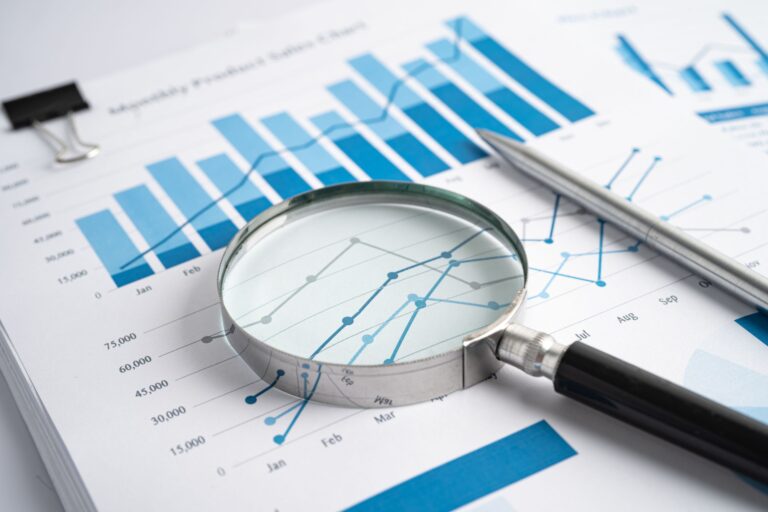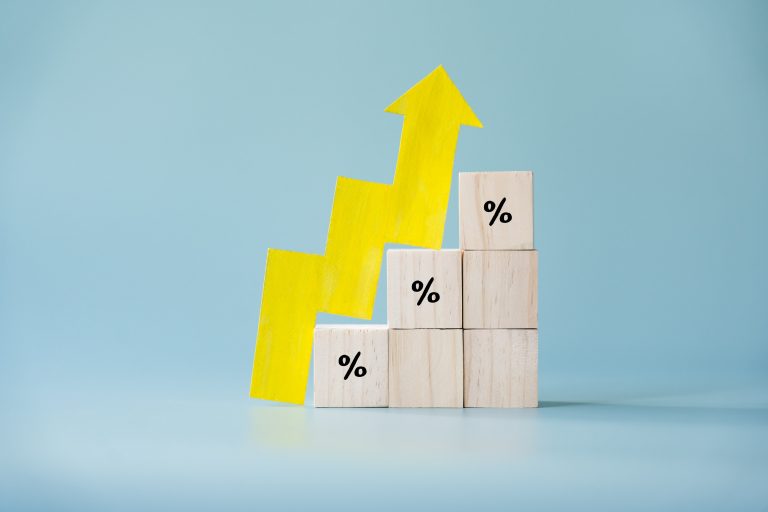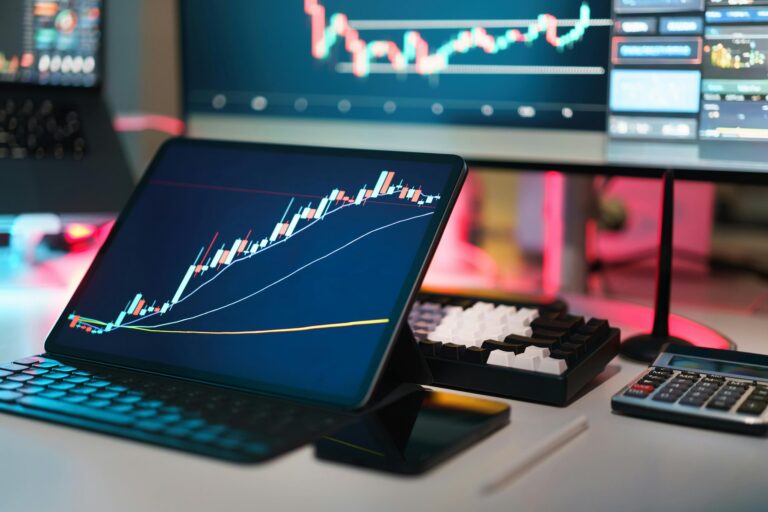
Introduction: Trading Has Left the Building
Not long ago, proprietary trading was a floor game—sharp suits, ringing phones, and whiteboards scribbled with numbers. Traders gathered in buzzing offices, feeding off live news and each other’s energy. But that world has changed dramatically. Thanks to advancements in technology, the prop trading desk has gone remote. Today, you don’t need a Manhattan office or a Bloomberg terminal to be part of the action. All you need is skill, discipline, and an internet connection. Prop firms have embraced this shift, and in doing so, they’ve created a brand-new class of global, remote-first traders. What was once a privilege limited to financial hubs is now a scalable, digital career for anyone, anywhere. In this article, we explore how remote prop desks are revolutionizing access to capital, redefining trader lifestyles, and reshaping what the future of trading firms looks like when everything—from risk to performance—is managed in the cloud.
The Technology Behind the Remote Prop Firm Revolution
At the heart of this shift is technology. High-speed internet, cloud-based trading platforms, advanced charting software, and remote risk management tools have made it possible for prop firms to operate without centralized offices. Traders log in from home, use secure APIs to execute orders, and connect with teams via Slack, Zoom, or Discord. Everything that once required physical infrastructure is now digital and decentralized.
This isn’t just convenient—it’s powerful. Remote trading desks can onboard talent from across the globe, analyze performance in real-time, and monitor risk more accurately than traditional firms ever could. Cloud systems allow prop firms to maintain constant oversight without micromanaging. Traders submit their metrics daily, risk teams apply automated alerts, and everything flows seamlessly, regardless of location. In this model, performance—not proximity—is what matters. It’s a model designed for scale, flexibility, and efficiency—and it’s here to stay.
Talent Without Borders: Why Global Recruitment Is the New Standard
Traditional prop firms hired locally. The talent pool was often limited to traders living near headquarters or willing to relocate. But remote prop desks changed that forever. Today, firms actively recruit from Nigeria, Vietnam, Brazil, Eastern Europe, and other regions that were previously excluded from finance’s inner circle. This global reach isn’t just ethical—it’s strategic.
Different regions bring different perspectives, risk appetites, and market interpretations. Prop firms now tap into this diversity to find hidden talent—traders who don’t have MBAs but have spent years refining strategies in solitude. Evaluation models are standardized, meaning a trader in Colombia is judged the same as one in Canada. It’s no longer about where you live—it’s about how you trade. That meritocracy is expanding opportunity and enriching trading culture with new ideas, languages, and approaches. Remote prop desks aren’t just more inclusive—they’re more innovative because of it.
Work-Life Freedom for the Modern Trader
Ask any remote prop trader what they love most about the lifestyle, and the answer is usually freedom. No commute, no dress code, no office politics. Just charts, structure, and space to breathe. For many, this freedom is more valuable than the payouts themselves. Remote trading allows people to build routines that suit their energy, whether they’re trading the London open at dawn or scalping the New York session from a quiet café.
That flexibility also attracts a more balanced breed of trader. Remote desks don’t celebrate overwork—they prioritize consistency. Prop firms understand that peak performance isn’t just about screen time—it’s about mental clarity. With remote work, traders can walk away when they need to, reflect on their sessions, and return refreshed. This rhythm, rooted in autonomy, builds healthier habits and longer careers. In a world where burnout is common, remote trading offers a sustainable alternative—one built on trust and results.
Prop Firm Collaboration in a Virtual Space
The myth that remote work is lonely doesn’t apply to modern prop firms. Online prop communities are vibrant, supportive, and often more dynamic than in-person teams. Traders connect through live chat rooms, strategy webinars, performance breakdowns, and peer mentorship. Collaboration is intentional. Some prop firms even create virtual floors—scheduled trading sessions where members can “sit” together, share ideas, and hold each other accountable.
This setup fosters a culture of excellence. Traders aren’t just competing in silence—they’re growing together, offering feedback, celebrating milestones, and sometimes trading side by side with people they’ve never met in person. Remote prop firms understand that community is not about proximity—it’s about shared goals. And in many cases, traders form stronger bonds online than they ever did in a traditional office. These virtual desks are more than trading spaces—they’re ecosystems of support, growth, and real human connection.
Risk Management in a Decentralized World
One of the biggest concerns about remote trading is oversight. How do firms protect capital when traders are spread across time zones and continents? The answer lies in automated risk management systems. Today’s prop firms use AI-driven analytics, real-time dashboards, and pre-set risk controls to ensure safety without micromanagement.
Traders are given drawdown limits, daily caps, and performance targets. The system flags violations instantly. In some cases, accounts are paused automatically when thresholds are breached—no phone call needed. This structure builds accountability into the platform itself. And it’s a win-win: traders feel trusted, and firms maintain control. Gone are the days of manual oversight and reactive damage control. In the remote prop firm model, risk is proactive, data-driven, and deeply integrated. It allows freedom without chaos—a balance that traditional firms still struggle to achieve.
Why Remote Desks Might Outperform Traditional Trading Floors
There’s a quiet irony at play here. While many legacy trading floors are struggling to retain talent and adapt to post-pandemic life, remote prop desks are thriving. They’re cheaper to run, faster to scale, and more attractive to traders who value lifestyle and autonomy. More importantly, they’re performance-centric. There are no corner offices or tenure hierarchies—just traders, strategies, and measurable results.
Remote prop firms can adapt instantly. They don’t need to rework leases or shift teams—they adjust dashboards, add evaluation criteria, and reallocate capital within hours. That agility makes them incredibly competitive. In a world where volatility, news, and technology change weekly, the ability to pivot fast is invaluable. While traditional trading floors wrestle with identity, remote desks are already operating in the future. And as the results continue to speak for themselves, more talent—and more capital—is likely to follow.
Conclusion: The Remote Prop Desk Isn’t a Trend—It’s the Blueprint
The world of prop trading is no longer defined by physical spaces or financial districts. It’s defined by performance, process, and global access. Remote prop firms have proven that traders don’t need to be in the same room to succeed. They need structure, accountability, and a system that rewards results. And they’ve built that system in the cloud. What began as a response to global shifts has evolved into a new standard. One where traders log in from anywhere, collaborate across continents, and grow without limits. The remote desk is not a workaround—it’s the model of the future. And for traders seeking freedom, scale, and sustainability, it offers something even better than an office with a view: a career with no ceiling.






